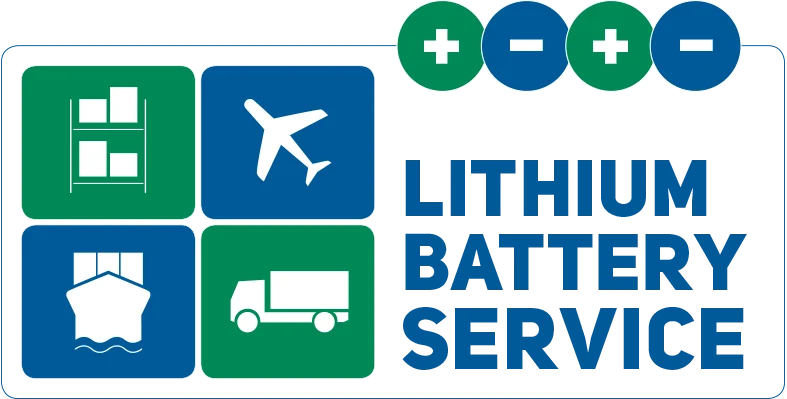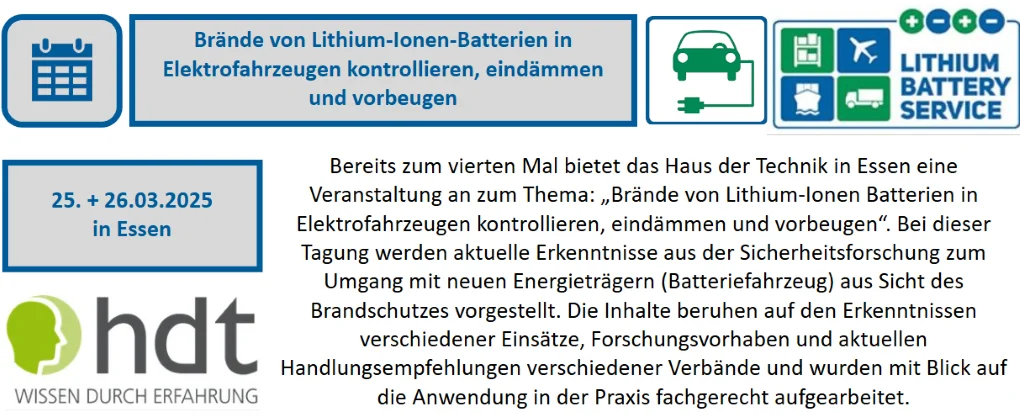Information on batteries shipped with the ocean carrier group ONE (Ocean Network Express)
It´s concerns all cells and batteries, also so called “dry batteries” like alkali mangane cells and batteries and others that are not subject to the transport regulations and also all varieties of lithium cells and batteries.
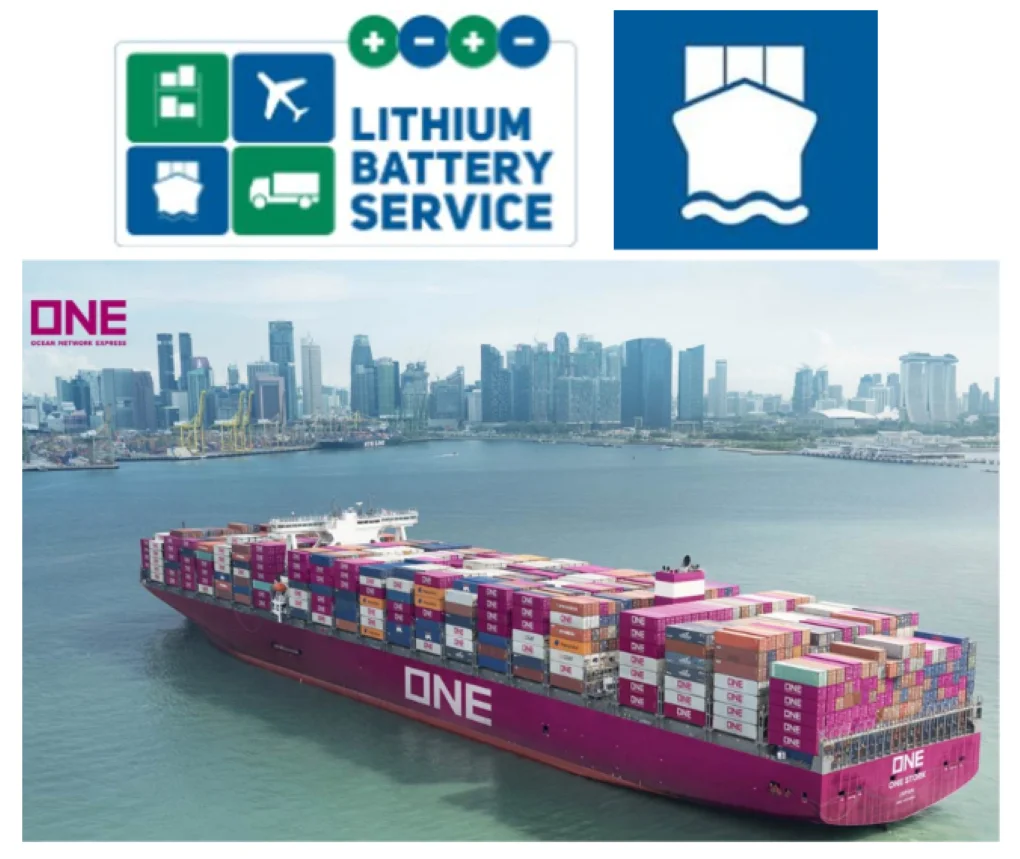
The text „Non-DG Batteries (including Lithium Battery)“ is misleading. It could be interpreted that lithium batteries fall
under the category “Non-DG” also which of course is incorrect.
Even „small“ lithium cells and batteries are classified as dangerous goods. Yet for transport there are the facilitations
of special provision 188.
We talked to a dangerous goods expert at ONE via their website´s chat function to find out whether the text
describing the requirements is only for “small” lithium cells and batteries of special provision 188.
Yet the surprising answer was: No. The requirements are valid for all lithium cells and batteries that are transported
with an ocean carrier of the ONE ocean carrier group.
In air transport we have the following cells/batteries that are not subject to the transport regulations:
- leak-proof wet batteries as described in special provision A67;
- Dry cells and dry batteries (like alkali-manganese, zinc-carbon and nickel-cadmium), as described in special
provision A123
- Nickel metal hydrid cells and batteries as described in special provision 199;
Here the link to the ONE website with the requirement: https://eua.one-line.com/news/customer-advisory-non-dg-batteries-stowage-application
More blog posts
Latest newsblog posts
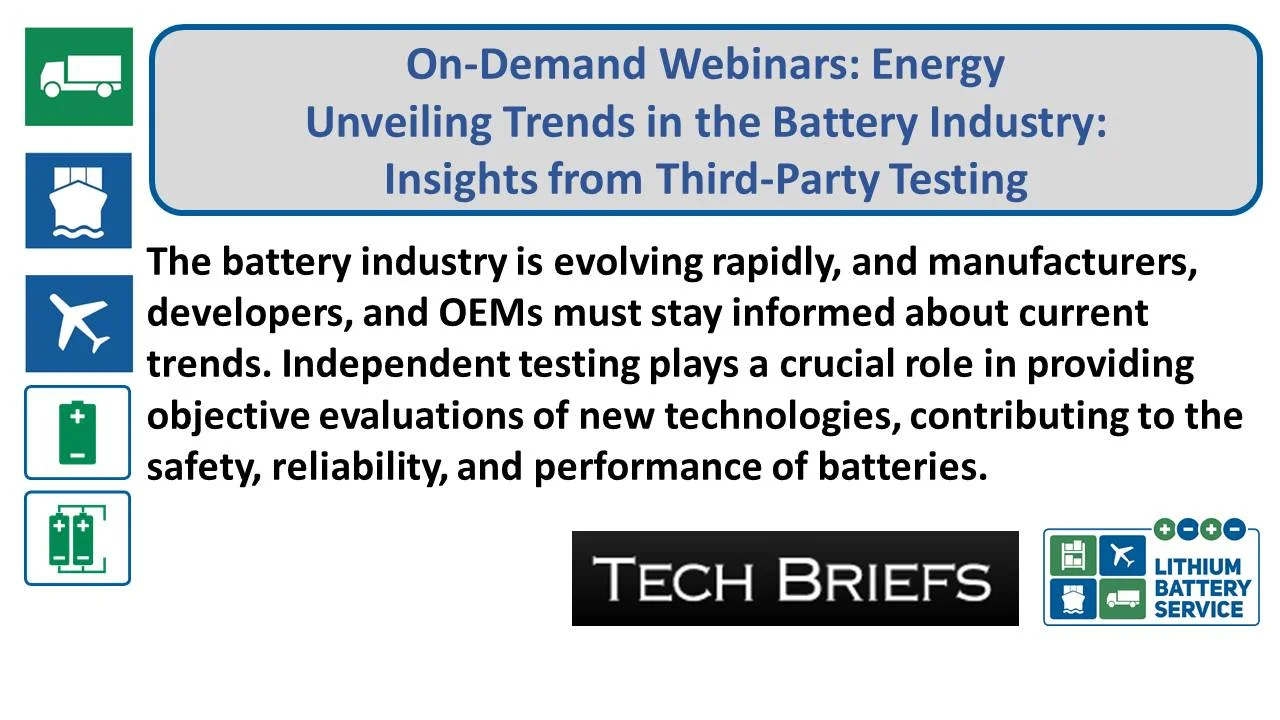
On-Demand Webinars: Energy - Unveiling Trends in the Battery Industry: Insights from Third-Party Testing
March 3, 2025
General
| Knowledge
The battery industry is evolving rapidly, and manufacturers, developers, and OEMs must stay informed about current trends.
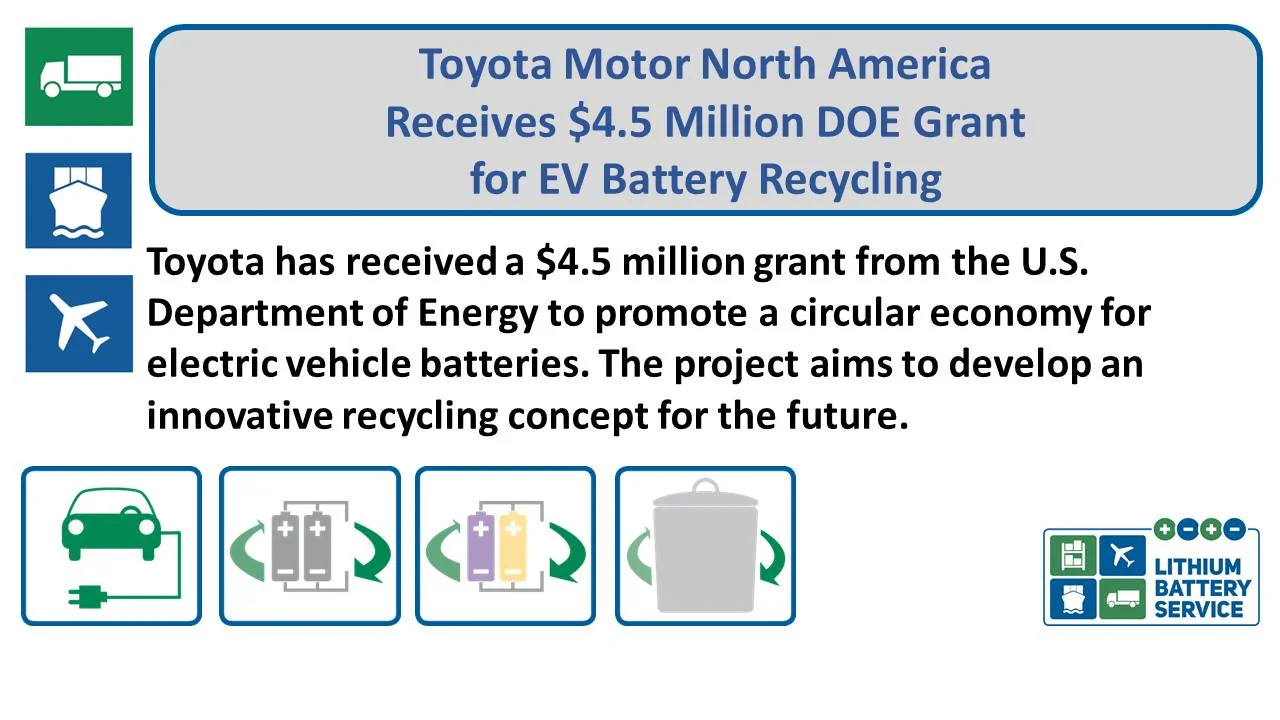
Toyota Motor North America Receives $4.5 Million DOE Grant for EV Battery Recycling
March 3, 2025
General
| Knowledge
Toyota has received a $4.5 million grant from the U.S. Department of Energy to promote a circular economy for electric vehicle batteries. The project aims to develop an innovative recycling concept for the future.
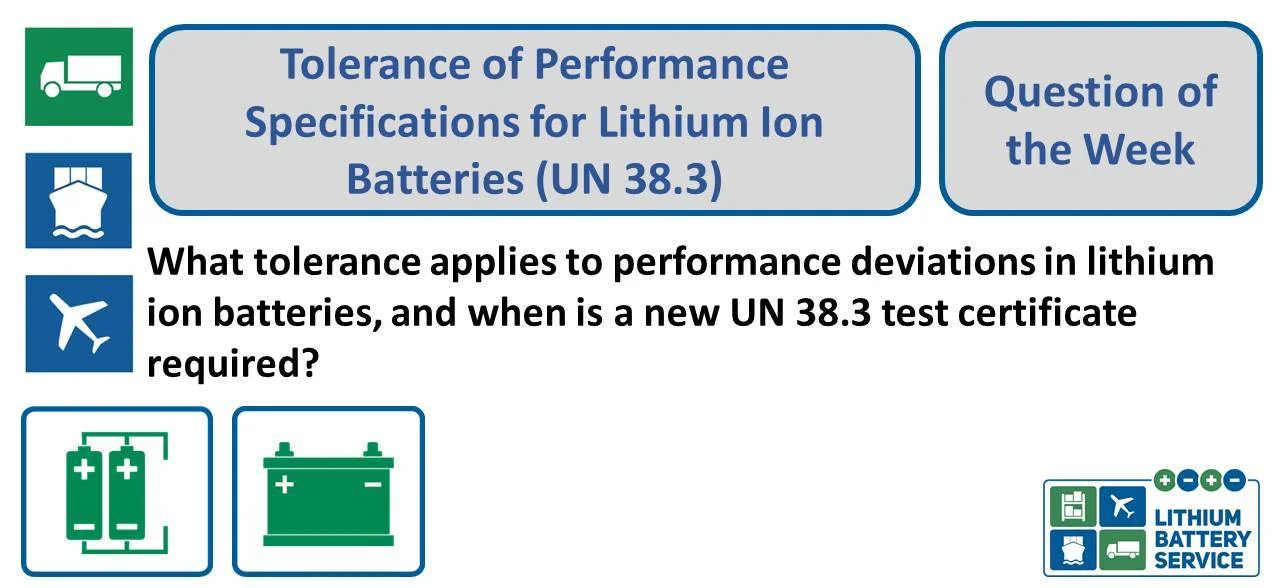
The question of the week is: What tolerance applies to performance deviations in lithium ion batteries, and when is a new UN 38.3 test certificate required?
March 2, 2025
Knowledge
| Regulations
What tolerance applies to performance deviations in lithium ion batteries, and when is a new UN 38.3 test certificate required?

Large lithium battery separated into individual lithium batteries with a maximum of 100 Wh using a switch
February 27, 2025
Newsletter

The tradesperson rule also applies to safety-critical defective lithium cells and batteries
February 27, 2025
Newsletter

Training dates March 2025 2.0
February 26, 2025
Dates
We can offer you the following training dates:
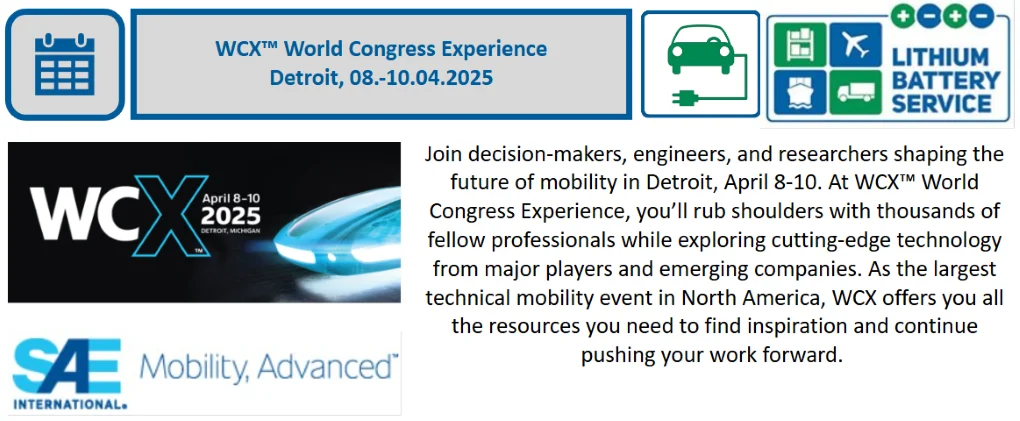
WCX™ World Congress Experience Detroit, 08.-10.04.2025
February 19, 2025
Dates
Join decision-makers, engineers, and researchers shaping the future of mobility in Detroit, April 8-10.

Weiterbildungstermine März
February 14, 2025
Dates
Weitere Termine finden sie auf unserer Homepage unter "Weiterbildung"
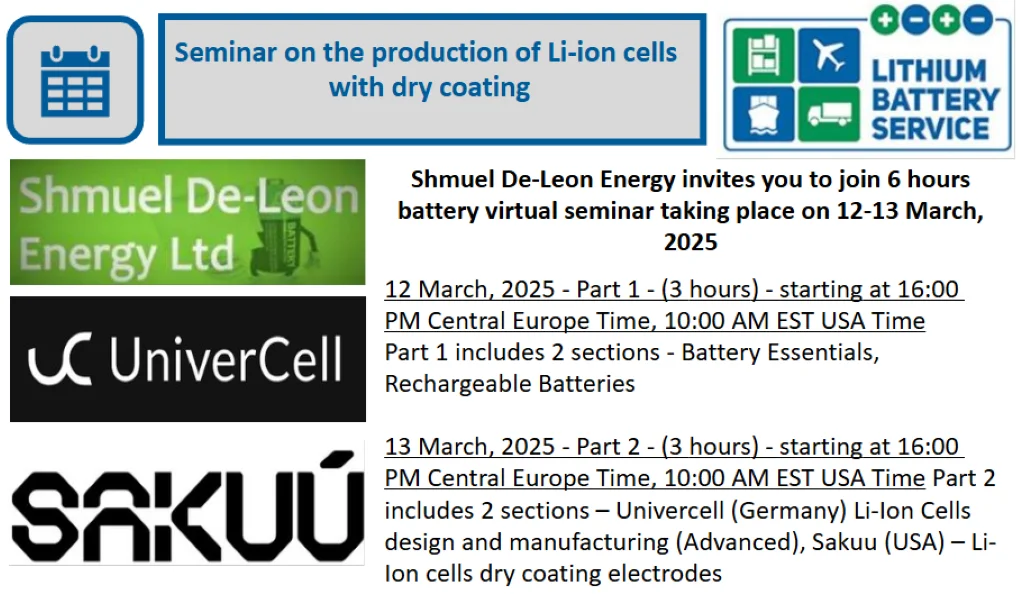
Li-Ion Cells Dry Coating Manufacturing Seminar
February 12, 2025
Dates
Shmuel De-Leon Energy invites you to join 6 hours battery virtual seminar taking place on 12-13 March, 2025.
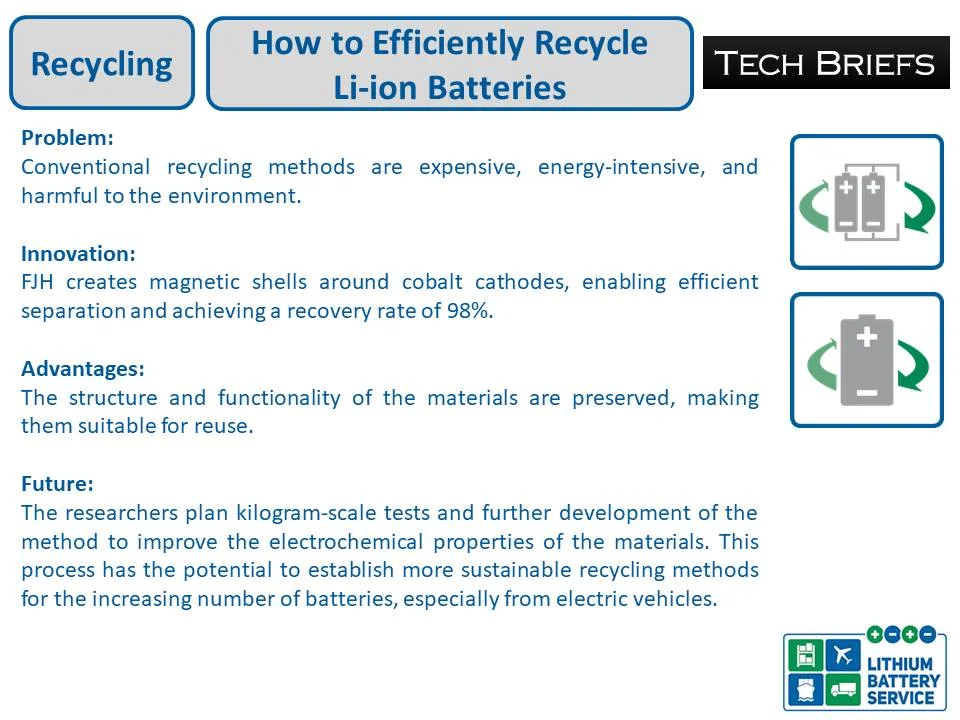
How to Efficiently Recycle Li-ion Batteries
December 14, 2024
Ideas
| Knowledge
The article describes an innovative method for efficiently recycling lithium-ion batteries, developed by a research team at Rice University led by James Tour.
